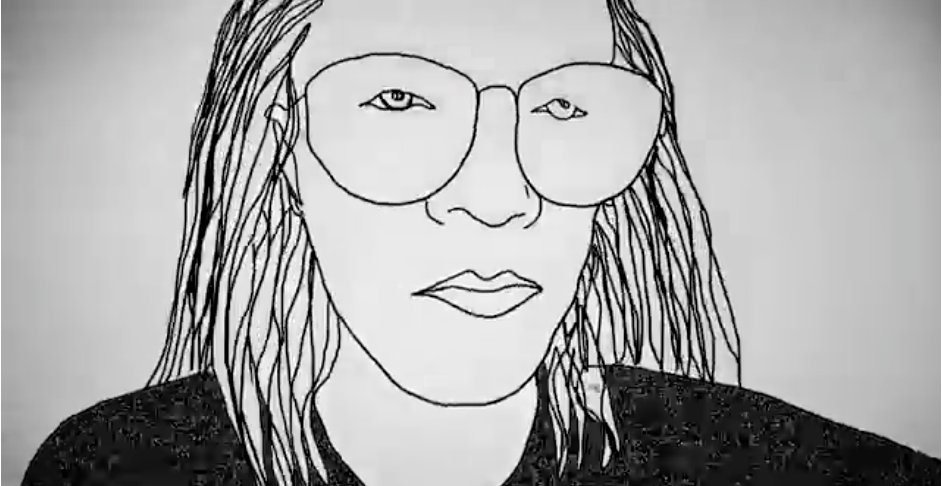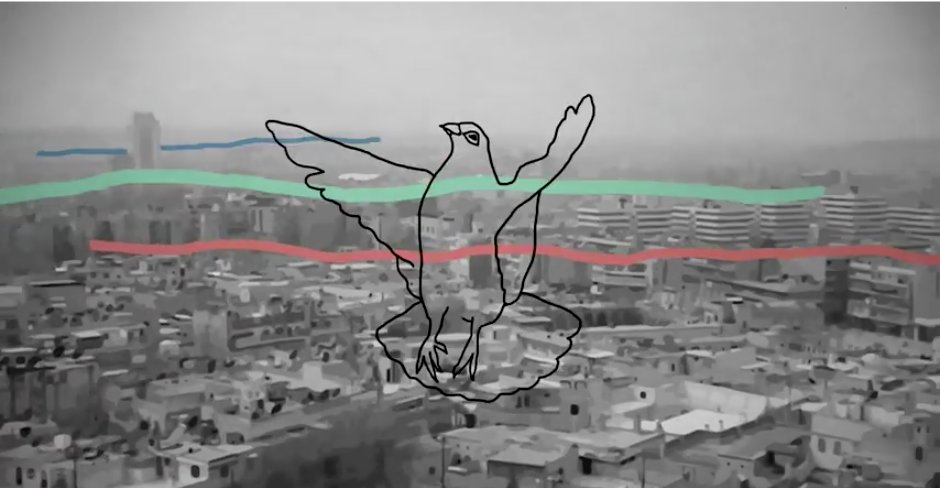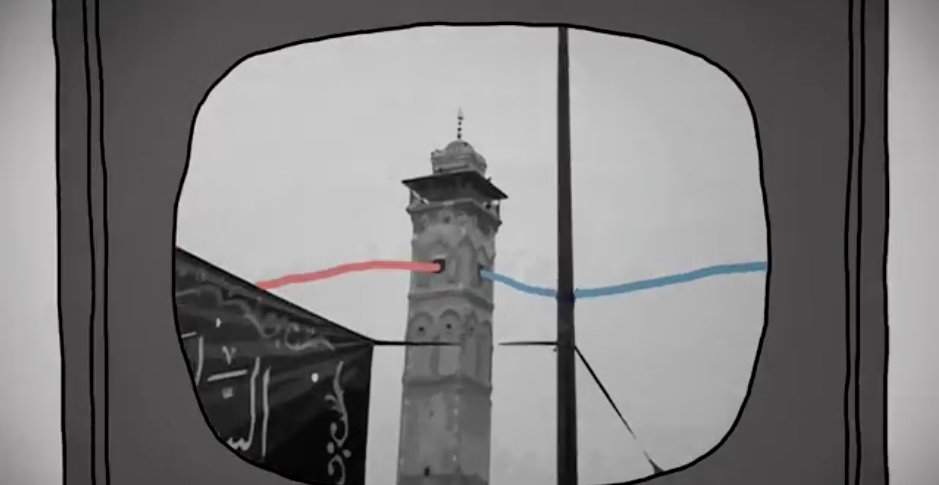In this interview, Samer Saem Eldahr (aka Hello Psychaleppo) talks about his new video for Shubbak entitled Shahba; his upcoming album; and his hope that electronic music can bridge both a musical and non-musical divide between the Middle East and the West.
Aimee Dawson: In the Middle East you often hear traditional, classic Arabic music such as Umm Kulthoum and Abdel Halim Hafez but your music takes these classics and remixes them – re-invents them almost – in a way that attracts both new and old audiences.
Hello Psychaleppo: Arab people are becoming increasingly nostalgic for our heritage and culture and I’m trying to use it in a new way that you can really dance to. I think that just clicked at some point and people seem to really like it.

AD: I read in an interview that you did that you felt like electronic music could help to bridge a gap between audiences in the Middle East and the West. You’ve recently moved to the USA – have you found a positive reaction to your music there?
HP: I’ve actually only been here for about four months so I haven’t had an opportunity to play here yet. But last week I was at Fusion Festival in northern Germany and I got some really nice feedback. The people didn’t understand Arabic, which most of my samples use, but mainly they related to the music phrases, the electronic sound and the dance – it’s this whole experience that they like to be in.
AD: Despite the fact that some Western audiences aren’t able to understand the Arabic, because they are drawn in by this familiar sound but with a new dimension it encourages them to find out more about the music and get to learn about the musical culture from Syria and the Middle East that they wouldn’t normally know.
HP: Yes, the music is fresh and it’s very new in the Middle East to have this kind of fusion of modern and heritage. At every gig there are a lot of people that don’t know this type music and it is always fun to watch how they are slowly engaging with it – enjoying certain lines or rhythms. At the end of the set people often feel like it’s been a journey and that’s very nice for me. Observing these kinds of small details is why I love playing live. After the set you get great feedback and lots of questions and that is why I do what I do.

AD: Did you get to play a lot in Syria before you had to leave?
HP: In Syria I didn’t play this project, Hello Psychaleppo, though I made my very first album when I was back in Aleppo. Mostly I used to play in a lot of bands.
AD: You left Syria for Beirut in 2012?
HP: Yes, the plan was just to stay there for a month. I am a Fine Art graduate and trained as a painter so I went there to start my career because it wasn’t possible to do that in Aleppo. I did my exhibition in Beirut but then I didn’t return to Syria because the situation there just kept getting worse and worse.
AD: How did you find living in Beirut? Is that when you started Hello Psychaleppo and did the city have a big influence on your music?
HP: Some people in Lebanon had heard the album that I had made back in Aleppo and they liked it. There was a Lebanese music producer, Nabil Saliba (aka Trash Inc.) who suggested doing a gig together at Metro Al Madina. I did the first gig and people really liked it so I decided to do a second album. I didn’t do any more gigs until I finished that album and that’s when things really took off.
AD: I also think it’s great that your works combine your background in Fine Arts with your music – they are rounded visual and sound pieces.
HP: I always try to combine these two mediums together because I love both sides of these creative practices. I want both the visuals and the sound to go hand in hand. For the last album I did all of the visual work that went alongside the music. For me the details are very important!

AD: Can you describe the piece you’re producing for Shubbak? It’s like a homage to Aleppo.
HP: I wanted to make people more engaged with this project so I posted on Facebook and asked all my friends to send me any footage that they had of Aleppo. I wanted to do a mixture of footage and the animation that I create myself. It’s like a composition of our collective memory.
AD: It sounds almost like a collaborative home video.
HP: Yes, exactly. And for me watching the footage and personal memories of people was very touching. I did a story where I am the main character and I’m animated alongside the video footage.
AD: You say that watching this footage was very touching but at the same time you must have felt some sadness and nostalgia for your hometown that is now so far away and in a terrible situation. How were you feeling when you were making this piece?
HP: I had lots of mixed feelings. Whilst working on this project I also had to do a lot of research about Aleppo, particularly the visuals that Aleppians relate to. For example, there is a yellow man who is very well known in Aleppo simply for the fact that he wears only yellow. He never takes it off. For every Aleppian or for every person who has been to Aleppo they relate to this person, this image. It’s in our visual memory. So things like this bring a lot of memories and it’s bitter-sweet.
AD: You’re working on your third album right now. Can you tell us a bit about it?
HP: It’s going to take around a year but I’m very excited. I’ve been doing the research for this album for around two years and it’s a lot of work but I think this is the album that is going to make it!
AD: Can you give us a hint of what to expect?
HP: Expect birds…
You can watch Samer’s new video Shahba for Shubbak Festival here. You can also see him live at The Mix on 25 July 2015 at Rich Mix.
You can listen to Samer’s music here
Aimee Dawson is this year’s Shubbak Festival writer-in-residence. She is a London-based writer and blogger on contemporary art from the Middle East and North Africa and the Editorial Assistant at Ibraaz.org.